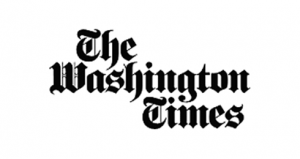
(This post originally appeared on The Washington Times)
Thank you, Congress. Thank you, Mr. President. Thank you, Treasury Secretary Steven Mnuchin and the Small Business Administration’s Jovita Carranza. And — most importantly — thank you, Sen. Marco Rubio who, with the Senate Small Business Committee, originally crafted and then tirelessly championed and guided the Paycheck Protection Program through its many challenges.
The program — despite what the usual critics say — has been a resounding success. Sure, there have been missteps. Too much money went to too many companies that didn’t deserve it. The big banks were accused of favoring their larger clients and slow to get out of the batter’s box at a very critical time. Certain key rules were unceremoniously changed. Smaller banks and more needy communities were overlooked. In its haste to get legislation out the door, many critical particulars were ignored.
But, considering the enormity of the program, problems are to be expected. And many of those issues have been resolved. The big banks got their act together and now account for a large portion of the loans. Big companies that had other means of financing were given the opportunity to give the money back and although many still hold onto the cash they will now face additional scrutiny. More of the rules have been documented and — with last week’s signing of the Flexibility Act — are now more realistic. Funds have been earmarked for smaller banks and minorities.
And the results cannot be denied. Just look at that the numbers. The most recent data from the Small Business Administration shows that more than 4.5 million Paycheck Protection loans have been approved and disbursed through almost 5,500 lenders, totaling almost $511 billion. The average loan size is $113,228, which means that it’s mostly small businesses that are benefitting from the program.
It’s a success. According to the Small Business Administration, of the estimated 31 million small businesses in the country, there are approximately 6 million employer-owned businesses (the program’s primary target). And, if you assume that it was those small businesses that were the main beneficiaries of the 4.5 million loans processed then, an astonishing 75 percent of them received the needed funding to not only keep their people on the job but have given them the ability to hire workers back over the coming weeks.
Unemployment, though still high, is recovering and I believe the impact of the program is just beginning to be felt. For millions of small business owners the Paycheck Protection money has been the difference between bankruptcy and the opportunity — at least — for a fighting chance to survive as they pick up the pieces left by the COVID-19 panic and embark on recovery.
It’s all great. Except for one big thing: forgiveness.
True, the Flexibility Act now gives business owners the opportunity to include 24 weeks of expenses in order to have their loans forgiven, which is up from the original eight weeks allowed. Those same business owners can now include more non-payroll expenses in the forgiveness calculation and they’ve also been given to the end of the year to restore their headcount and compensation from before the epidemic.
But is this really necessary? With those new rules, it’s highly likely that most of the 4.5 million loans will be fully forgiven. So why are we making these small business owners — already overwhelmed with enormous safety, health, workplace, marketing and other operational issues — now go to the time and effort to fill out the forms and provide the documentation needed for forgiveness? Why are we forcing bankers, accountants and attorneys to do these services, many of them feeling uncertain whether or not it’s ethical to charge their damaged clients for the time needed?
By simply converting the loan forgiveness program into a grant program we can move on to rebuilding our businesses and our economy. Sure, there will be some fraud and yes, not all the loans are destined to be forgiven. Or maybe we ask companies that received loans of say $1M or more to provide the documentation.
But if you consider the cost/benefits of all the extra work involved for the smallest of businesses it would be much less expensive in the long term as well as more appropriate — and consistent — for the Trump administration to take this step if it wants to continue to reduce government regulation and bureaucracy that it so publicly campaigns against.

